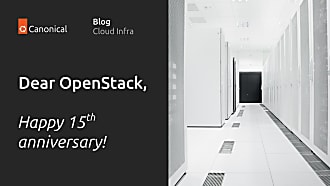Mark Baker
on 12 November 2012
Your questions answered: the best of our webinars Q&A
What protection is available against my organisation infringing another company’s intellectual property when we use open source software?
(Question covered in the Ubuntu Cloud webinar)
ANSWER
The question is a serious one. Thousands of developers from around the world are involved in the creation of open source software, including Linux. They’re careful to respect intellectual property, but it’s possible that some element of the open-source code belongs to a third-party organisation or individual. Unwittingly running such software could expose a business to claims from the holders of patent or copyright.
At the same time, the way open source software is developed offers huge benefits to businesses. They can receive regular software updates, they benefit from a vast pool of software development knowledge, the software is road-tested and bugs are reported and fixed rapidly.
But IT managers are right to ask what risks they are taking on when they use open source software in their organisation. Seasoned IT pros may remember SCO Group’s 2003 lawsuit against Novell, which implied that business users of Linux distributions were infringing its rights .
Eventually SCO lost its case and with it the claim on the Linux operating system. But for a while some users were concerned that their use of Linux might expose them to a legal risk which could cause reputational as well as financial damage.
Legal assurance for Ubuntu users
While anyone can download Ubuntu for free, it’s important for enterprise users to note that the operating system is also supported by Canonical’s professional services organisation. As well as providing support and best-practice for deploying Ubuntu, we also offer legal assurance to customers opting for its Ubuntu Advantage program.
In the unlikely event of an intellectual property issue in Ubuntu, Canonical will replace or modify the infringing portion of the software so that it becomes non-infringing, or obtain the rights for businesses to continue using the software. It also takes care of intellectual property (IP) infringement legal claims brought against customers in their use of Ubuntu.
Businesses selecting Canonical’s Ubuntu Advantage program take no greater intellectual property risk than those choosing proprietary software. But unlike users of proprietary software, they get the advantages of open source development and will not be charged for every image of the software they use. This is proving a mature business choice for thousands of corporations, governments and not-for-profit organisations around the world.
Want to receive this content direct in your inbox? Register here.



